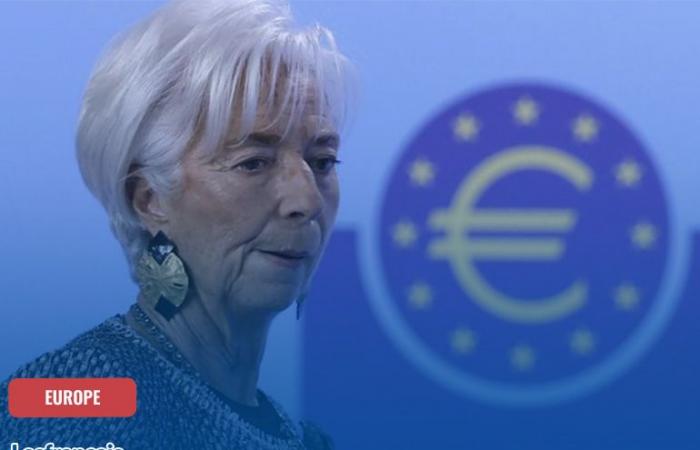Increased US protectionism under the Trump administration could damage EU consumers’ confidence in the economy, and the euro zone’s already weak growth rate could suffer, the EU president has warned. the European Central Bank (ECB), Christine Lagarde, Monday December 16.
The ECB chief said in a speech in Vilnius, Lithuania, that the“inertia » in household spending was mainly due to the high inflation observed in recent years, which pushed consumers to “take a prudent approach to spending”despite the increase in real wages.
While the easing of price pressures would normally result in a« dissipation »From this caution, the promise of Donald Trump, who will return to the White House in January, to impose high customs duties on all American imports could reinforce the pessimism of European households and therefore further weaken the euro zone economy , she noted.
“This pessimism about real incomes is largely fueled by past inflation, and should therefore in principle dissipate as the episode of high inflation recedes[…]But growing geopolitical uncertainty could deal further blows to household confidence.she explained.
“If the United States – our main export market – takes a protectionist turn, growth in the euro zone risks suffering” underlined the president.
More and more Europeans are worried about the consequences of Donald Trump’s return to the presidency of the United States on the euro zone economy, already shaken by low levels of investment, high energy prices and weak domestic and external demand.
Donald Trump, who called the term “ customs duty » ( tariff in English) of “most beautiful word in the dictionary,” pledged to impose duties of at least 10% on all U.S. imports. According to estimates by investment bank Goldman Sachs, this could lead to a 1% drop in eurozone GDP.
In addition to the drop in the level of consumer confidence in the economy, the measures proposed by the Republican will directly affect European exporters, warned Christine Lagarde.
Dismal economic outlook
Christine Lagarde’s remarks follow multiple downward revisions to the euro zone’s economic outlook that the ECB has made over the past year.
Last week, the ECB cut its annual GDP growth forecast for the eurozone to just 0.7%, 0.1 percentage points lower than its previous September forecast and 1.1 percentage points lower than what she had planned in June 2023.
Christine Lagarde explained that half of “errors” of the ECB in its recent growth projections were due to lower-than-expected investment rates, themselves caused by the larger-than-expected effects of the ECB’s restrictive monetary policy and high energy prices.
She also noted that a quarter of these errors resulted from lower-than-expected consumption levels, with many EU households bearing in mind the sharp price rises triggered by Russia’s invasion of Ukraine .
“The inertia of consumption is striking while the conditions for a recovery are met”said the President of the ECB, highlighting the employment levels “historically high” and the increase in real wages.
Monetary policy to the rescue?
However, Christine Lagarde suggested that eurozone growth rates would likely be boosted by the fact that the ECB has entered a process that involves lowering interest rates over the coming months.
Last week, the ECB lowered its key interest rate to 3%: this is its fourth rate reduction this year. Some analysts expect rates to fall as low as 1.5% by the end of next year.
Headline inflation in the eurozone is currently 2.3%: well below the peak of 10.6% reached in October 2022, and barely above the ECB’s target rate of 2%.
“With the disinflation process well underway and the risks of a decline in growth”the fact of having to maintain rates “sufficiently restrictive for as long as necessary” was not “more justified” she explained.
Christine Lagarde also noted that the effects of US policies on eurozone inflation were “impossible”to be expected, due to“retaliatory measures”that the EU could take and“fluctuations in exchange rates and commodity prices”.
“The net effect of trade fragmentation and tariffs on inflation remains uncertain, as it involves assumptions that cannot be predicted precisely”she concluded.
I like this:
I like loading…
Leave a comment






